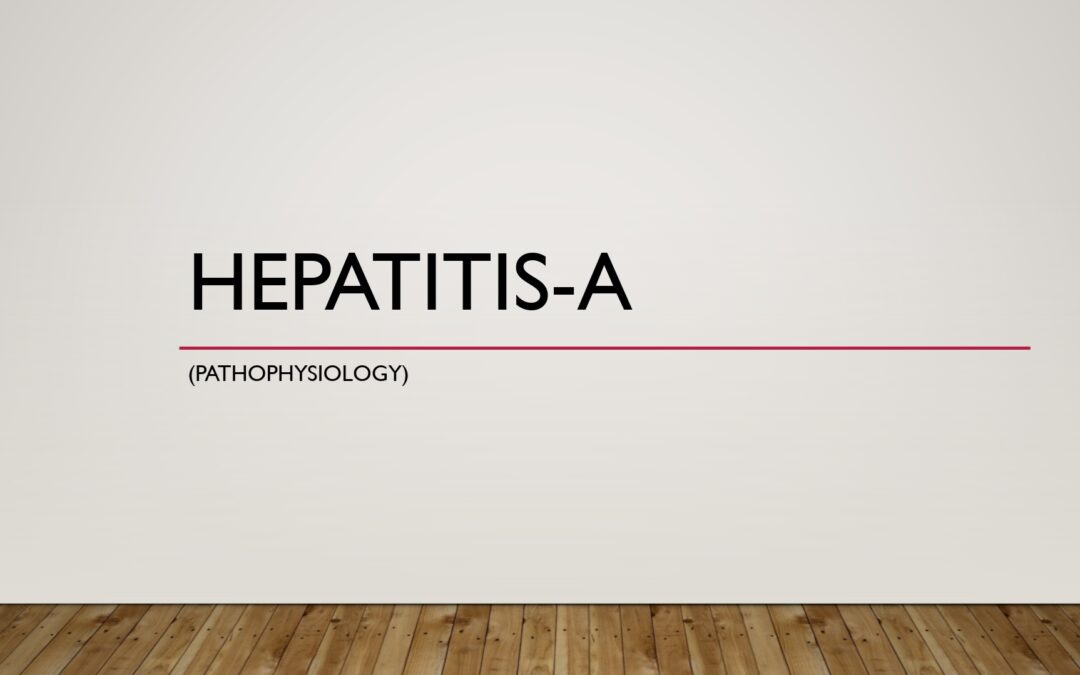INTRODUCTION–
Almost all liver infection which is caused by viruses which leads to inflammation and damage is termed as ‘Viral Hepatitis’. Causative agents are viruses namely hepatitis A, B, C, D, and E.
In Type A hepatitis is an acute infection which is also called as ‘hep A’ which rarely leads to liver complications (like cirrhosis, etc.) and it primarily spreads through contact with contaminated food or water by an infected person’s stool (fecal-oral route).
CAUSATIVE FACTOR–
Contact between virus and individual can be possible in various ways, as follows-
1)When an infected individual without proper hygiene (washing hands) prepares food for someone who consumes it is most likely to get infection.
2) Consuming contaminated water or things like fruits or veggies washed from it.
3) Accidently putting things (contaminated ice cubes) or finger which comes into direct contact with stools.
4) Personal contact with already infected person, it includes- sex with them or taking care of patient, etc.
5) If anyone consumes raw shellfish which is harvested from already contaminated water source.
Hepatitis A does not spread from following ways-
1) Coughing or sneezing (they are not aero borne)
2)By hugging or sitting with the patient.
3) Breastfeeding (mother to baby )
SYMPTOMS–
In most of the cases involving older children and adults symptoms appears between 2-7 weeks of infection before it they remain asymptomatic also in children younger than 6 they remain asymptomatic even after being infected. As it is an acute illness once the treatment start they get better in few weeks only, in some cases only it can last up to 6 months, symptoms which can be seen are as follows-
1)Urine colour changes to dark yellow.
2) Along with diarrhoea, stools turn to grey or clay color.
3) Fever, fatigue.
4) Loss of appetite, nausea, vomiting, abdominal pain.
5) Painful joints in many cases.
6) Jaundice (marked symptom)
COMPLICATIONS–
In most of the cases they recover without any complications as it is an acute disease, although in rare cases if patient is older than 50 years or with other already existing liver issues it may lead to liver failure
RISK FACTOR–
Certain group of persons are more susceptible to infection than others, they are as follows-
1)Travellers, especially travelling to under developed areas or countries where hep A is common.
2) Sexual intercourse with the infected person, homosexual relationship.
3) Drug addiction (recreational drugs), drugs which are not injectable too.
4) Unstable socio-economic status (homelessness or low living standard).
5) If any near one (close contact) or family member is already infected.
6)Those who already suffers from haemophilia or grave diseases like HIV.
7)Workers at facilities which deals with primates ( gorilla, chimpanzees, etc.)
DIAGNOSIS–
It is based mainly on two criteria-
1)Clinical symptoms
2)Blood test- First of all test for high level of liver enzymes, then sample is sent for confirmatory test to detect antibodies to the hep A virus called immunoglobulin M (IgM) in the blood. It has two inference-
1) Presence of IgM antibodies- it is formed when infection is for the first time and it remains in blood for 3-6 months.
2) Presence of IgG antibodies- Protective against Hep A, if it is present in blood means Hep A virus infection is not acute one and these antibodies are there for lifetime to protect .So, If test came positive for IgG but not for IgM antibodies, then it means hepa A infection is in the past or person had already vaccinations for it.
MANAGEMENT–
Line of treatment is symptomatic and supportive care once a person is confirmed with Hep A virus until it subsided.
Steps involved in managing any case is as follows-
1)Adequate rest is adviced.
2)Diet is to be monitored as liver is in stress n often complain of nausea and vomiting is also present which makes even harder to eat a full meal at a time, so diet should be managed in order to ensure proper nutrients are taken to ensure proper healing which includes high calorie foods and drinks like coconut water or fresh fruit juice is to be taken in place of water which helps to remain hydrated if vomiting prevails.
3) Alcohol should be completely prohibited. Liver is unable to handle alcohol as well as medication both when it is already infected.
In totality whole treatment plan is based on resting, Fluid intake, healthy diet, supplements as well as medications to relieve symptoms under complete guidance of physician.
VACCINATION–
Vaccination schedule for Hep A is as follows-
Children- Between 12 and 23 months of age.
(Between ages 2-18 years must get vaccinated against Hep A)
Hep A vaccine is given in two shots between interval of 6 to 12months after first dose, both doses are mandatory for complete protection, also there is a combination vaccine for Hep A and B which includes 3 shots over the span of 6 months.
Vaccine is mandatory for those who are at higher risk of infection and especially those with past history of liver diseases.
PREVENTION–
Proverb ‘Prevention is better than cure’ is best suited for Hep A, as its prevention is equally important than its cure for a better healthy virus free life, few steps which can ensure it is as follows-
1)Most important is ‘washing hands thoroughly with soap and lukewarm water for at least 20 seconds after following activities-
a) After using personal or public toilet both.
b) After changing baby diapers.
c) Cooking before as well as afterwards.
2) Taking precautions during travelling- mainly food and water related (like avoid drinking water everywhere, use pet bottles, etc.)
3)Alertness and awareness about the symptoms , consult the physician as soon as possible after probable contact with the virus.
4) Complete dose of vaccination as soon as possible if there is contact with virus in any case.
5) If a person had hepatitis A after the age of 11 then he/she should not donate blood.
6) Proper knowledge of contagious period ( 2 weeks before the symptoms appear is the most contagious phase which can last upto 3 weeks which vary in adults and children).
HAPPY LEARNING
Contributor- Dr. Apurva Varangi




